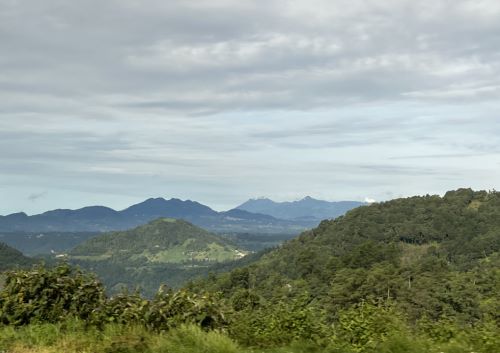April 30, 2024
K-State Successfully Secures $6M Grant Led by the Feed the Future Innovation Lab on Sustainable Intensification

Kansas State University’s Feed the Future Sustainable Intensification Innovation Lab (SIIL) has been awarded a 5-year $6 million grant from the United States Agency for International Development (USAID) – Guatemala, which is set to strengthen existing agricultural research, education, and outreach entities in Guatemala.
P.V. Vara Prasad, director of the SIIL, university distinguished professor, and R.O. Kruse professor, noted “The SIIL has an extensive background, experience and successes in international agricultural research and development in multiple countries around the world, which positions us to deliver positive change in Guatemala”.
Historically, Guatemala’s rural and indigenous communities have battled with poverty and malnutrition due to a lack of resources which in turn impedes the economic growth and development in the country. At 47 percent, Guatemala has the highest rate of stunting in the Western Hemisphere, the sixth highest rate in the world, with the prevalence rate reaching 70 percent in some parts of the predominantly indigenous Western Highlands.
Ernie Minton, the Eldon Gideon Dean of the College of Agriculture and the Director of K-State Research and Extension remarked "The College of Agriculture is so proud of the SIIL’s efforts to eradicate hunger, poverty, and malnutrition on a global scale,” Minton said “The lab’s commitment to research, and dedication to finding solutions to food insecurity is something that inspires us all at Kansas State University. The search for and eventual application of these solutions couldn't have been accomplished without the strong leadership and commitment from all the members of the lab."
The Guatemala Scaling Agriculture Technologies Coordination Activity is in partnership and collaboration with Universidad del Valle de Guatemala (UVG) a private university, and the Institute of Agricultural Science and Technology (ICTA) a government entity, who are the leading agriculture and technology institutions in the nation. With the leadership and assistance from these, the activity will work to engage the farming communities, local partners, and private sector to address food insecurity and chronic malnutrition through sustainable and inclusive agricultural-led economic growth.
This activity aims to coordinate agricultural innovation activities in Guatemala through public-private partnerships, innovation and technology transfer, strengthened higher education and research institutions, and investment in human and social capital. In addition, it will also focus on improving agricultural nutrient management through use of decision-making tools. All of the activities will be specifically focused in the country’s Western Highlands.
“This activity is designed to be locally led, locally relevant, participatory, and engaging on all fronts of the project,” Jan Middendorf, associate director of the SIIL, said. “We intend to be inclusive of women and youth along with the indigenous communities to design a framework that is comprehensive and inclusive of all.”
It will foster and serve as a platform for private-sector innovation, education, communication, and knowledge-sharing aspects related to Climate Smart Agriculture (CSA). Some of the key targets will be to increase and protect yields, enhance the profitability and resilience of farming systems, and market access to local crop producers through adoption and scaling of CSA practices. Activities are set to empower and provide knowledge to local actors so that they can lead positive change in their communities.
Prasad said, “We are excited to work closely with our in-country partner organizations and scholars to develop and support their human and institutional capacity to address many challenges of agrifood systems, which include food, nutrition, climate and soil insecurities.”